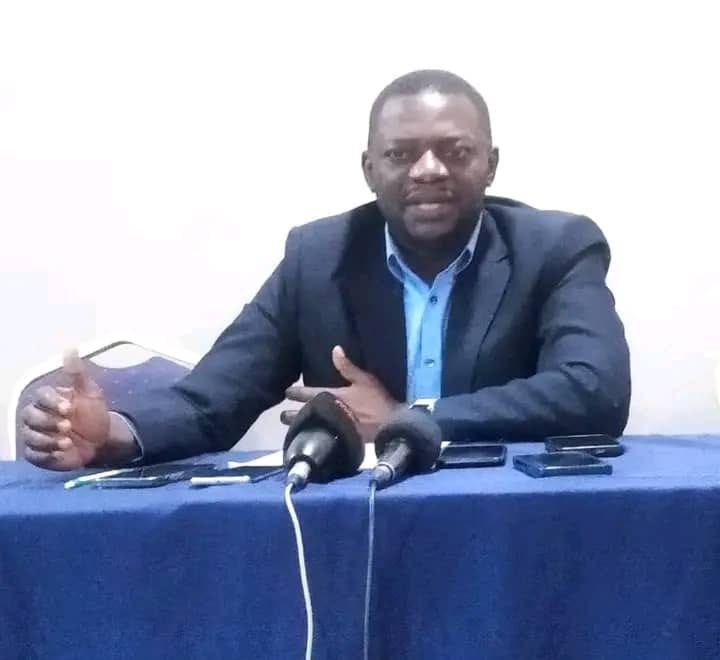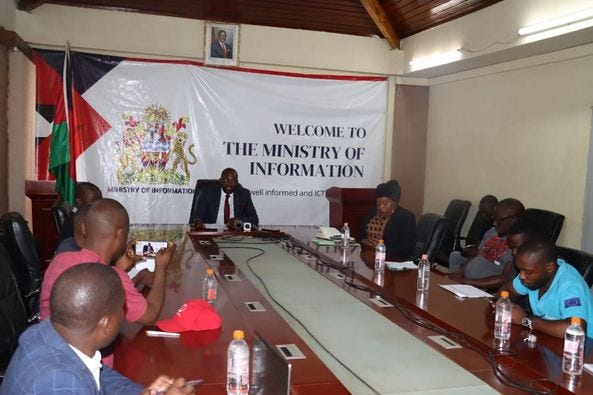Malawi Plane Crash Investigation Sparks Controversy Amid Calls for Patience
The HRCC condemned the tendency of some citizens to draw premature conclusions, suggesting that investigators have failed in their duties.
LILONGWE, Malawi — The investigation into the June 2024 plane crash that killed Malawi's former Vice President Saulos Chilima and eight others has become a source of national controversy, with human rights advocates calling for patience as authorities work to determine the cause of the tragedy, write Wendi Mkandawire and Winston Mwale..
The German Federal Bureau of Aircraft Accident Investigation (BFU) released a preliminary report on the crash yesterday, revealing a series of potential safety lapses and outdated equipment.
However, the report stopped short of identifying the cause of the accident, stating that a comprehensive final report is not expected until the summer of 2025.
This lack of immediate answers has led to speculation and political finger-pointing, prompting the Human Rights Consultative Committee (HRCC) to issue a statement calling for calm.
"We have observed with great concerns the politicization of this tragic loss, including the various accusations and suspicions directed at individuals and the government, particularly the president," said HRCC Chairperson Robert Mkwezalamba in a signed statement.
The HRCC condemned the tendency of some citizens to draw premature conclusions, suggesting that investigators have failed in their duties.
"It's premature for recipients of this report to draw definite conclusions or suggest that the BFU has failed to explain the cause of the crash," Mkwezalamba added.
The preliminary report highlighted several troubling issues, including a non-functional Emergency Locator Transmitter with a battery that expired in 2004, and outdated navigation information in Malawi's official aeronautical publications.
These findings have raised questions about the overall state of aviation safety in the country.
Despite these revelations, the BFU has emphasized that determining the exact cause of the crash requires further investigation.
The Dornier 228 aircraft, carrying Chilima and eight others, crashed into a forested hillside about 34 km southwest of Mzuzu on June 10, 2024, amid deteriorating weather conditions.
The HRCC has also called on authorities to maintain transparency in their communications about the investigation to prevent further speculation.
This comes as some citizens have begun to voice frustration with the pace of the investigation and the lack of definitive answers.
The crash and subsequent investigation have become a politically charged issue in Malawi, with some opposition figures suggesting foul play and others criticizing the government's maintenance of military aircraft used for VIP transport.
As the nation awaits more definitive answers, the HRCC's call for patience underscores the complex and time-consuming nature of aircraft accident investigations.
It also highlights the tension between the public's desire for quick answers and the meticulous process required to determine the cause of such tragedies accurately.
Meanwhile, as controversy swirls around the investigation into the June 2024 plane crash that claimed the lives of former Vice President Saulos Chilima and eight others, the Malawi government has stepped forward to affirm the accuracy and integrity of the interim report while calling for public patience.
Minister of Information and Digitalisation, Moses Kunkuyu, addressed the nation in a press briefing at the Central Office of Information in Lilongwe, emphasizing the credibility of the German Federal Bureau of Aircraft Accident Investigation (BFU) interim report.
In a move to increase accessibility, the government has translated the report into Chichewa, the country's widely spoken local language.
"This translation underscores the need to reach a broader audience facing limitations in accessing information via diverse social media platforms among other outlets," Kunkuyu stated, highlighting the government's commitment to transparency in the investigation process.
The minister urged media houses across all platforms to exercise caution and verify facts to ensure accurate dissemination of information, noting that the report is now accessible to all Malawians.
This call for responsible reporting comes amid growing speculation and political tension surrounding the crash investigation.
Kunkuyu also shared details from the report about the flight crew's qualifications, noting that the 54-year-old Pilot in Command (PIC) held both a commercial pilot license issued by South Africa's civil aviation authority and a military pilot license from the Malawi Air Force.
"The PIC held the rating as a flight instructor for the type Do228. He had a total flying experience of 2,367 hours, of which 2,006 hours were on type. In the last 90 days, he had flown 24:40 hours and in the last 24 days 02:40 hours," Kunkuyu quoted from the report.
The loss of Chilima, who was 51 and seen as a rising figure in Malawian politics, along with several other government officials, continues to reverberate through the country's political landscape.
As investigations continue, the incident serves as a stark reminder of the importance of aviation safety and the potential consequences of neglecting crucial safety measures.
With the final report not expected until mid-2025, Malawi faces a prolonged period of uncertainty regarding the exact circumstances of the crash.
In the meantime, the preliminary findings have already sparked calls for a comprehensive review of the country's aviation practices and infrastructure.
As the nation grapples with this tragedy, the coming months are likely to see continued debate about aviation safety, political accountability, and the balance between public demand for information and the methodical process of accident investigation.





